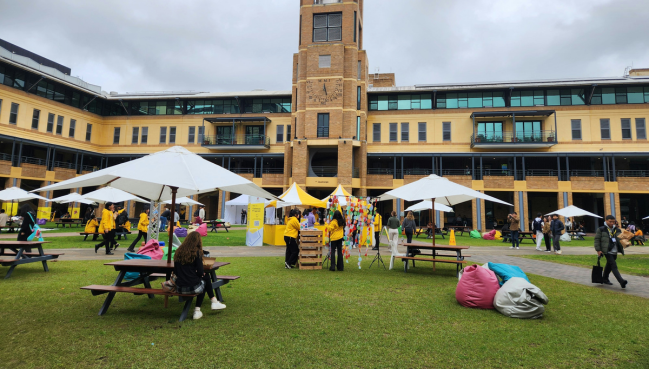9 Most Common Student Resume Mistakes To Avoid In Australia

A resume is one of the most important documents for any job application.
Most recruiters and employers receive thousands of resumes each day for job applications. And every single applicant tries their best to stand out.
But still we notice that many students don’t pay attention to these common student resume mistakes when submitting their job applications.
So in this article, we are going to talk about the 9 most common resume mistakes to avoid in Australia.
1. Typos and Grammatical Errors
The majority of international students in Australia are from non-English-speaking countries, and while many students are confident in their English levels, there is always the possibility of some minor errors or mistakes in their resume.
We have seen local students who are well versed in English language making these mistakes as well.
The best way to avoid grammar and spelling errors is to proofread your resume before sending it for any job application. Make sure you read every single line in your resume and check it thoroughly.
If you are not confident enough, you should get someone else to proofread your resume for you before submitting it for any job application.
If you need help, you can ask your tutors or support staff team in your university or institution.
2. Not Customising Your Resume
Most students, when they apply for jobs these days, use ready-made resume templates for their job applications.
That is perfectly fine as a starting point, but many students use this same resume for every job application.
That is certainly the wrong thing to do.
If you are really serious about getting a job, you should be customising your resume for each job application.
This is important because these days, resumes are not first read by human beings; they are usually first read by automated machines and software, and if your resume passes the test by the software or machine, then it gets passed to the Human Resource Manager.
It is critical to understand that your resume must be tailored to the job advertisement you see on the website.
We recommend that you read the job advertisement thoroughly, go through some of the keywords that are in the job advertisement, and make sure you customise your resume based on those keywords.
That would certainly give you an edge over other applicants.

3. Including Unnecessary Information
Your resume should not be more than 2 or 3 pages. In those 2 or 3 pages, you want to highlight the best things possible on your resume.
Try to avoid any unnecessary information that is not relevant to the job you are applying for.
For example, if you have already completed graduation, then you don’t need to include information about your Year 8 or Year 10 information.
And when it comes to adding experience to your resume, add only experiences that are applicable to the job application.
For example, if you are applying for an IT job, then including all of your previous experience in hospitality jobs might not be a big help.
If you don’t have any experience in the IT industry, then you might include the most recent experience in the hospitality industry.
Try to look for some volunteer or internship opportunities, so you can include relevant work experiences.
4. Wrong Sequence of Information
Most students already know that they should always include their experience first in their resume, followed by their educational background and other information.
One of the things you should always keep in mind when it comes to experience is that you should always consider what type of job you are applying for.
For example, you might be applying for a job as a graduate accountant, and your recent job experience might be working as a cashier at McDonald’s, while you also did an internship last year at an accounting firm.
In this case, you should highlight your internship experience even though it might not be your most recent work experience, as long as it is relevant to the job application.
That experience should be listed first in your experience section, and you can include your McDonald’s experience after that.
That sequence of information is very important when applying for a job.
5. Ignoring Volunteer or Unpaid Work
As an international student in Australia, it is very difficult to get a job right away in your own industry or field.
One of the mistakes that students make in their resume is that they might have done some unpaid work or volunteer work in Australia, but they do not include that in their resume.
Volunteering could include helping the local charity or the local football club, or any of the other volunteer work that you have done in Australia. It is always good to include that in your resume.
Not only does it demonstrate that you are a person who loves to help the community, but it also shows your ability to work with teams, your communication skills, and many other soft skills.
So, when it comes to unpaid work or volunteering, it is highly recommended that you include it in your resume; Australian employers love to see it, especially if you have no work experience at all.
And if you are looking for some volunteer work, then we suggest you check websites like Seek Volunteer and Go Volunteer.
6. Not Having a Visually Appealing Resume
Many international students don’t pay attention to their resume aesthetic, that is, the layout, spacing, font, or colours in their resume.
There are plenty of applications available for you to create your resume for free. You can also download a free resume template from our website here.
We make sure our resume templates stand out in terms of aesthetics, and they are visually appealing as well.
Before you submit any resume for any job application, make sure it follows the basic formatting standards.
In a standard Australian Resume, you do not need to include your photos or personal information; your culture, your religion, the country you come from, your gender, etc.
If you make your resume stand out visually, that would definitely give you an edge over other job applicants.

7. Providing Wrong Contact Information
This is one of the biggest sins you can commit on your resume, that is, providing wrong contact details on your resume.
It is very important to provide your contact details on the resume. Your contact details usually include:
- Your postal address
- Your phone number
- Your email address
- LinkedIn profile URL (optional)
- Your website (optional)
If any of the contact details you are providing on your resume is wrong or outdated, then it could mean that you might miss out on the job.
Imagine an employer picking up the phone to call you for an interview to only find out that the number is wrong, it might put them off contacting you as they might consider it a very negligent act on your part.
So, make sure to check your contact details before submitting your resume for any job application.
8. Not Providing Any Data or Statistics
Gone are the days when employers will accept any generic resumes for the job applications.
These days you need to stand out among thousands of job applications.
Including specific numerical data or statistics or results you achieved in your previous jobs are going to make a clear statement about yourself as an applicant.
So let’s say you worked in the hospitality job as a supervisor, and you want to include some recognition from that job role in your resume.
In that case, you can use some specific quantified data or numbers like “I helped to increase the restaurant sales by 15% by introducing Instagram influencers into our social media strategy”.
You can talk about statistics or numbers regarding customer satisfaction rates, sales, profit, cost savings, etc.
9. Not Including Academic Achievements
It is quite fair to say that students who just completed their graduation recently will not have a ton of experience on their resume.
The good thing is that employers and recruiters know that too.
So while there might not be many work-related achievements on the resume, it is critical to include any academic achievements in the resume. Which is often underestimated by many students.
Academic achievements could include:
- High grades
- Specific subject achievements
- Certificates of recognition from school or teachers
- Testimonials or reference letters from lecturers or tutors
- Group project achievements
- Other academic achievements

Summary
In the summary, we can conclude that doing any of the common student resume mistakes we discussed above could mean getting rejected for your job applications.
So, our suggestion is to pay attention to these mistakes, and before you submit your resume for any job application, proofread it and check that you are not making these mistakes.


